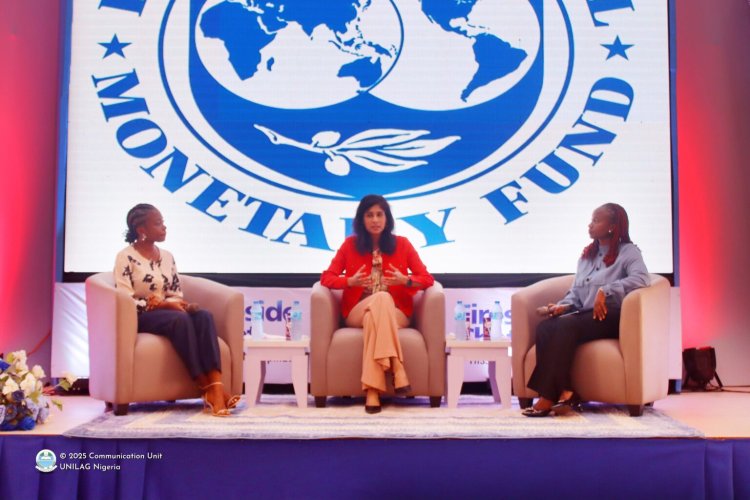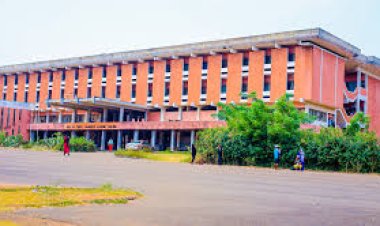IMF Chief Gita Gopinath Engages UNILAG Community in Fireside Chat
IMF First Deputy Managing Director, Prof. Gita Gopinath, engaged with staff and students of the University of Lagos (UNILAG) in a Fireside Chat on March 4, 2025. She discussed key global economic concerns, including low growth and high debt levels, and urged emerging economies like Nigeria to diversify their revenue sources beyond fossil fuels.

The First Deputy Managing Director of the International Monetary Fund (IMF), Prof. Gita Gopinath, engaged with staff and students of the Faculty of Social Sciences, University of Lagos (UNILAG), in a thought-provoking Fireside Chat on Tuesday, March 4, 2025. The event, which took place at the Faculty of Social Sciences Lecture Theatre, attracted a large audience eager to discuss global economic challenges and opportunities.
During the interactive session, Prof. Gopinath highlighted concerns about the current state of the global economy, describing it as being in a "low-growth zone." She emphasized that high debt levels and varying economic performances across nations remain critical issues.
“The IMF’s greatest concern about the global economy is that it is in a low-growth zone. There is a lot of divergence among world economies, with countries respectively doing way beyond and below expectation. There’s also the reality of high debt levels compared to low growth. It’s going to be a challenge that will be with us for a while,” she stated.
Addressing the transition to clean energy, Prof. Gopinath urged emerging economies, particularly Nigeria, to build resilience by diversifying export revenue sources beyond fossil fuels. She pointed out that services, manufacturing, and mineral exploration aligned with the green transition could serve as alternative income streams.
Acknowledging concerns about the IMF’s role in developing economies, Prof. Gopinath noted that the institution has evolved to prioritize social safety nets when advising on policy implementation. She stressed that the IMF is conscious of how its policies impact local communities and aims to ensure sustainable economic development.
Prof. Gopinath also delved into the future of work, particularly in the era of Artificial Intelligence (AI). She noted that over 40% of global jobs are vulnerable to AI disruption and advised emerging economies to invest in digital infrastructure and workforce upskilling to harness the benefits of AI-driven transformations.
“The transformation that AI brings is going to be faster and more disruptive than the one which came before,” she warned, encouraging students to stay proactive in adapting to technological advancements.
The IMF chief shared personal insights, urging students to seize opportunities and strive for excellence. “I never thought of being a Professor at Harvard and working at the IMF. All I did was make the best of every day. You can start from anywhere and make the absolute best of the opportunities you have been given,” she advised.
Representing the Vice-Chancellor, the Dean of the Faculty of Social Sciences, Prof. Adelaja Odukoya, expressed gratitude to Prof. Gopinath for visiting UNILAG as part of her first trip to Nigeria. He commended the Department of Economics, led by Prof. Oludiran Akinleye, for organizing the event, which he described as an invaluable learning experience for students.
Following the Fireside Chat, the IMF delegation visited the Senate House, where Vice-Chancellor Prof. Folasade Ogunsola, OON, FAS, warmly received Prof. Gopinath. The Vice-Chancellor presented the university’s developmental goals and initiatives aimed at equipping staff and students to address contemporary challenges. Prof. Gopinath, in turn, lauded UNILAG’s inclusive leadership, particularly its strong representation of women, and assured continued collaboration with the institution.

 Chris Oyeoku Okafor
Chris Oyeoku Okafor 



